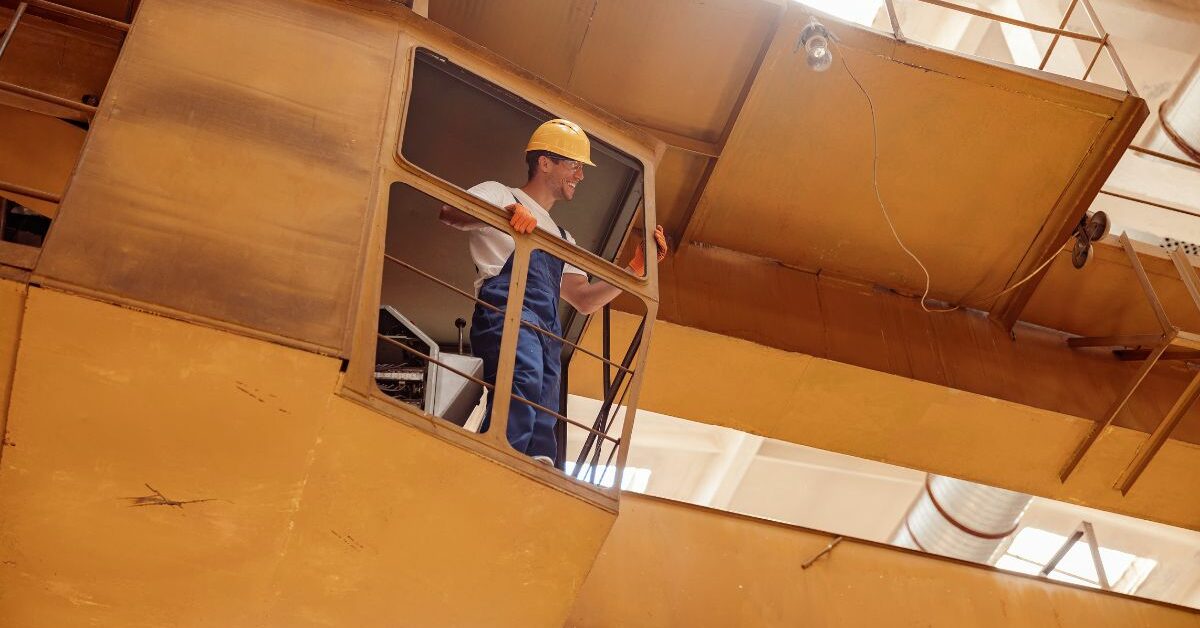How To Become a Crane Operator?
Crane operators are responsible for lifting and moving heavy loads on construction sites, shipping ports, and other job sites. Operating a crane requires skill, experience, and specialized training. If you’re interested in pursuing a career as a crane operator, there are several important steps you need to take. In this article, we’ll explore what it takes to become a crane operator, the skills you’ll need, and the benefits of pursuing this career path.
Steps To Becoming a Crane Operator
Are you interested in becoming a crane operator? This career path can be both challenging and rewarding, but it requires a significant amount of training and certification. It takes roughly 2 months of training to prepare for exams and employers look for roughly 2-4 years of experience in the field. Here are the steps you’ll need to follow:
- Meet the basic requirements
Before you can become a crane operator, you’ll need to meet several requirements. These typically include being at least 18 years old, having a high school diploma or equivalent, and having a valid driver’s license. Additionally, you’ll need to be in good physical condition, as this job can be physically demanding.
- Complete a training program
Once you meet the basic requirements, the next step is to gain the necessary training and certification. Most crane operators need to complete a formal training program that includes classroom instruction, hands-on training, and on-the-job experience. During this training, you’ll learn about crane safety, operation, and maintenance.
- Get certified
Different states may have different requirements for crane operator certification, so it’s important to research the laws in your state. Generally, crane operators must be licensed and certified by the federal government. This certification process typically involves taking a written exam, taking a practical exam, and submitting to a drug test and physical exam.
- Gain experience
Once you’re certified, you’ll need to gain experience operating cranes. This can be done through an apprenticeship or by working as an assistant to a more experienced crane operator. During this time, you’ll continue to learn about crane operation and safety.
- Consider additional certifications
Depending on the type of crane you’ll be operating, you may need additional certifications. For example, if you’ll be operating a tower crane, you’ll need a tower crane operator certification. Similarly, if you’ll be operating a mobile crane, you’ll need a mobile crane operator certification.
- Stay up-to-date
As a crane operator, it’s important to stay up-to-date with the latest safety regulations and best practices. This can be done through continuing education courses and attending industry conferences.
Becoming a crane operator can be a challenging process, but it can also be incredibly rewarding. As a crane operator, you’ll have the opportunity to work on a variety of projects, from building construction to bridge repair. You’ll also play an important role in ensuring that these projects are completed safely and efficiently.
Skills Needed For Operating a Crane
Operating a crane is no easy feat. It requires a great deal of skill, experience, and knowledge to become a successful crane operator. The job of a crane operator is not only physically demanding but also mentally challenging. Here are some of the skills you’ll need to become a successful crane operator:
- Hand-eye coordination: Operating a crane requires a high degree of hand-eye coordination. You must be able to focus on multiple things at once, such as the crane’s movement, the load you’re carrying, and the environment around you.
- Depth perception: You must have a good sense of depth perception to operate a crane safely. This skill allows you to judge the distance between the crane and the load, as well as the height and width of the load.
- Mechanical aptitude: A good understanding of mechanics is essential for crane operators. You must be able to troubleshoot any issues that arise with the crane, as well as perform regular maintenance to keep it in good working order.
- Problem-solving skills: As a crane operator, you’ll encounter many unexpected challenges. You must be able to think on your feet and come up with creative solutions to problems that arise.
- Ability to follow detailed instructions: Crane operators must be able to follow detailed instructions precisely. This skill is essential for ensuring the safety of everyone on the job site.
- Excellent communication skills: Clear communication is critical when operating a crane. You must be able to communicate effectively with other workers on the job site, as well as with the person directing you on where to move the load.
In addition to these skills, crane operators also need to have good physical stamina and strength. The job often involves long hours of standing, lifting, and operating heavy machinery. It’s important to take care of your body by staying hydrated, stretching regularly, and taking breaks when needed.
Overall, operating a crane requires a unique set of skills and abilities. If you’re interested in pursuing a career as a crane operator, it’s important to start by gaining experience and knowledge in the field. With hard work and dedication, you can become a skilled crane operator and enjoy a rewarding career in this exciting field.
What Is a Crane Operator?
A crane operator, as mentioned earlier, is responsible for lifting and moving heavy loads on construction sites, shipping ports, and other job sites. They operate machinery used to move and lift heavy materials, equipment, and structures. Crane operators work in a variety of industries, such as construction, mining, manufacturing, and transportation.
Crane operators are highly skilled professionals who must undergo extensive training to operate these complex machines safely and efficiently. They must have a thorough understanding of the different types of cranes available and the specific requirements of each job site. They must also be knowledgeable about the different types of loads that they will be lifting and moving, as well as the safety protocols and regulations that govern crane operations.
Crane operators must be physically fit and able to work long hours in all types of weather conditions. They must also be able to work at heights and in confined spaces. They must have excellent hand-eye coordination and be able to make quick decisions in high-pressure situations. Additionally, they must be able to communicate effectively with other workers on the job site and follow instructions from supervisors.
Crane operators play a critical role in the success of construction projects, as they are responsible for ensuring that heavy materials and equipment are moved safely and efficiently. They are often required to work in challenging and hazardous environments, making their job both demanding and rewarding.
The Benefits of Working as a Crane Operator
If you’re considering a career as a crane operator, there are several benefits to this profession. One of the biggest advantages of working as a crane operator is the potential for high pay. Crane operators typically earn a decent salary, and the job often comes with benefits like health insurance and retirement plans.
But the benefits of being a crane operator extend beyond just financial rewards. For one, crane operators get to work outdoors, enjoying the fresh air and sunshine while on the job. This can be a welcome change from the monotony of an office job, and can be especially invigorating for those who love spending time in nature.
In addition, being a crane operator can be a great way to travel and see new places. Many crane operators work on construction projects all over the country, and even around the world. This can be a great opportunity to experience new cultures, meet new people, and see new sights.
Another benefit of working as a crane operator is the potential for job stability. As long as there is construction and infrastructure development happening, there will be a need for crane operators. This means that those who choose this career path can enjoy job security and peace of mind, knowing that their skills will always be in demand.
But perhaps the biggest benefit of working as a crane operator is the sense of pride and accomplishment that comes from being part of large-scale construction projects. Crane operators play a crucial role in building everything from skyscrapers to bridges to stadiums, and seeing these projects come to fruition can be incredibly rewarding.
Overall, becoming a crane operator requires hard work, determination, and specialized training. But for those who are up for the challenge, this career path can provide a stable, rewarding, and well-paying job, as well as opportunities for travel and personal growth.




